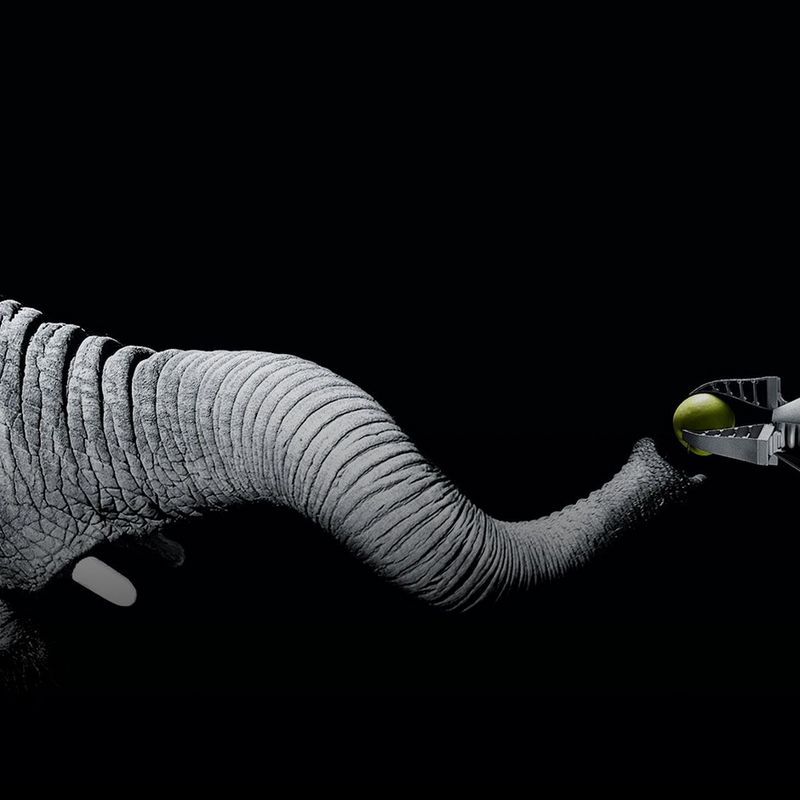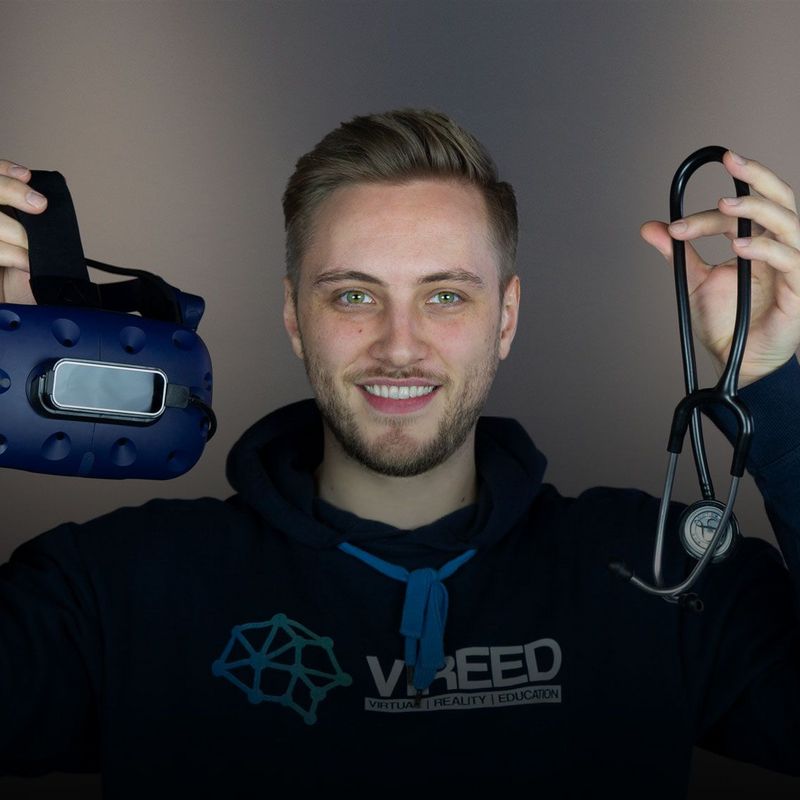03. February 2022
The word “longevity”, rather than just meaning “long life”, also implies a good and healthy quality of life. In Silicon Valley, this branch of academic research is now also being rocket-fuelled by a whole industry: start-ups with powerful and prominent investors are now promising to deliver both a higher life expectancy and improved health in old age. So, what is this trend towards eternal life actually all about? Geneticist Dr Sebastian Grönke talks about the state of the art of the scientific knowledge alongside the possible risks and side-effects.
#explore:In the last 150 years, human life expectancy has doubled. We’re now living to 80 and more, but getting old is strongly associated with illness, and quality of life hasn’t quite kept up.
Dr Sebastian Grönke: The main aim of research into ageing is to reduce that phase at the end of life when things can really go badly wrong to a minimum. The scientific jargon talks here about the compression of late-life morbidity.
So, you’re researching into why we age.
In general, you can simply define ageing as the multiplication of damage caused by both external and internal factors. For instance, the DNA in our bodies constantly replicates, and where you have replication, you also have mistakes which accumulate as we go through life and eventually result in a loss of function.
Why is that?
Our DNA consists of a sequence of four base pairs. When these get transcribed – in other words, when our cells divide – our genetic material is initially duplicated so that it can later be split between two cells – and this is where mistakes can happen. The enzymes that do the transcription are very efficient, but, as we get old, the rate at which mistakes occur rises. This can result in cancer, for example.
Is there a satisfactory explanation for ageing?
The process is very complex. Genetic mutations are just part of it. Ageing happens on a lot of levels: in metabolic processes, with those proteins which are responsible for cell integrity but also for most cellular functions. If you consider neurodegenerative conditions like Alzheimer’s, what you get is an accumulation of proteins in the form of plaques. This kind of damage on various levels can have the overall consequence that our cells and organs no longer work as well as they once did. And it’s on this level that we understand the ageing process. But why the natural repair mechanisms lose their effectiveness as we age is still not clear.
„As we age, nearly every process in the body changes. Some changes play a causal role in the ageing process. And it’s these we’re trying to identify to enable us to find those places where we can tinker, where we can intervene.“
And how can we prolong our lives?
As we age, nearly every process in the body changes. Some things just happen but have no impact on our longevity. Other changes play a causal role in the ageing process. And it’s these we’re trying to identify to enable us to find those places where we can tinker, where we can intervene.
You’re experimenting on fruit flies, nematode worms, killifish and mice. What are animal experiments telling us about ageing?
Pretty much everything we know about ageing is derived from animal studies. You start with relatively simple model systems like the nematode, for instance, which has only a few thousand cells, or a fruit fly. Once you’ve got some new findings, you then take the next step and work with mice. You often get the killifish in between the two. As a vertebrate, it’s closer to us than a worm, and it has a very short lifespan, which is real advantage when it comes to research into ageing. If you were to test everything out on people, you’d have to stick at it for decades. What interests us is the observation that there are a lot of processes at play that influence lifespan, whether you’re a worm, a fruit fly or a mouse.
Can you give us an example?
The insulin signal path has been preserved in the evolutionary process from worm to human being, which means that the same molecules have a similar function in all animal species. If you reduce the activity of the signal path, you can significantly extend the lifespan of worms, flies and mice. The idea is to use animals to find prospective ways to improve the longevity and health of human beings.
Businesses claiming to offer commercial solutions are shooting up all over the place, especially in California. What’s your assessment of this?
Consumers shouldn’t take what they hear at face value. In my view, much of it is premature, because the applications aren’t backed up by clinical studies. Whatever you look at, be it blood transfusions or active substances, there isn’t a single study that can provide any evidence to show that human life can be prolonged. Some people will of course say that, if we have to wait for this, it’ll take decades. And because they can’t see any personal benefit in this approach, they jump on the bandwagon.
The method of biological reprogramming is currently being very widely talked about. This is based on a discovery made by Japanese Shinya Yamanaka, for which he was awarded the Nobel Prize in 2012. It really does sound like “reverse ageing”: older cells are dosed up with genetic factors, leading to their rejuvenation. Is that the breakthrough everyone’s been waiting for?
Time will have to tell. But it’s definitely an interesting approach; after all, rejuvenating older cells has also proven possible outside of cell cultures. Studies have shown that it works in mice. The principle is this: you take a somatic cell, a skin cell for instance, and add the four Yamanaka factors to it. The adult cells respond by returning to the embryonic condition of a stem cell. For rejuvenation you only run the gene programme for four to five days before stopping it. The benefit of this is that the skin cell rejuvenates but remains a skin cell; in other words, it doesn’t revert to an embryonic state. There are now even studies which have shown that this also works for human cells, albeit of course only in a cell culture. With mice they were able to incorporate the Y-factors into the genetic material and activate them for the experiment. This is, of course, out of the question with human beings for ethical reasons.
A lot of companies are currently doing research on this. What’s in the pipeline at the moment?
You’re right in that the basic research has already delivered a lot of ideas. The next big step will be to see what effects can be generated in human beings. And it’s obviously a good thing that money is pouring into the sector outside academic research and people are sitting up and taking notice. Mind you, the findings will have to be rigorously put through their paces in clinical studies. Here’s a good example that was only held up by the pandemic: the idea of carrying out further research in the US in the TAME study, where TAME stands for “Targeting Ageing with Metformin”, a diabetes drug. Metformin is the first drug which has been used to try to influence the ageing process – and that in healthy old people rather than diabetes sufferers. We need clinical studies like this. We’ve already derived a lot of information on possible approaches from the animal model.
Research is also being carried out on the gut microbiome – with drugs, rejuvenation factors and blood plasma. What are you focusing on in your working group?
We’ve been able to show that mice which are fed only once a day and with only 60 percent of their normal food live up to 40 percent longer and are significantly healthier in old age. What we’re now interested in is seeing what a reduced diet would ideally look like. We’ve already found that reducing calorific intake has nothing to do with it; it’s more about how the nutritional elements are combined. Here, the relationship between proteins and carbohydrates is important. In the long term, a diet involving a permanently reduced food intake with less protein is beneficial for a long life. In a second approach, we’re experimenting with combining different cancer drugs. In this way we’ve succeeded in significantly extending the lifespans of flies, worms and mice: by ten percent with one active agent, and, when we combined the active ingredients, by as much as 40 to 50 percent in flies. We’re currently investigating this in mice with the aim of showing that it’s also relevant to mammals.
© iStockNot only through the method of biological reprogramming, but also through blood plasma, research companies want to turn the wheel of time.
What’s your prediction? When will human beings be able to profit from the current findings?
It’s difficult to say when it comes to people. Ageing is not defined as an illness, so there are no approved treatments. Which means that researchers can’t carry out studies on human beings which are focused solely on the ageing process. This also explains why we can’t introduce any newly developed drugs whose sole function would be to delay the ageing process. We’re making things easier for ourselves by using drugs that are already approved in different contexts. Precisely because it’s less problematic to use them with people. But this isn’t going to happen in the next five to ten years.
What approach do you personally think is particularly promising?
I think that there are a lot of things of more-or-less equal value. Personally, however, I’d concentrate on diet. We know very well that our genes are only ten to fifteen percent responsible for our lifespan and health. Most of what leads to a long life has to do with our behaviour: what we eat, how much we exercise, and whether we live in an environment with lots of pollution. We really do hold the keys to long life in our own hands and can only rarely blame bad genes.
120 has traditionally been considered the absolute limit to the human lifespan. Some US researchers maintain that we could live to a thousand.
I always try to refer to the model organisms that we’re working on when I’m called on to answer this. In these cases, we’ve achieved a maximum lifespan extension of 30 to 50 percent. I also think it would be realistic to think in terms of extending the human lifespan by 30 percent. But I see no scientific basis for 1,000 years. There is, in any case, a natural limit imposed by organ systems which can’t regenerate very well, like the brain for example. We’re seeing much higher instances of neurodegenerative disease than we used to. This shows that the brain is a particularly major age-limiting factor.
About Sebastian Grönke
© Privat
Molecular biologist Dr Sebastian Grönke is a researcher into the biology of ageing at the Max-Planck-Institute in Cologne.
Start-ups in the longevity field
“Altos Labs”, which was founded in 2021, is profiting from billions of dollars of investment. The start-up has attracted investment from Amazon founder Jeff Bezos and the Silicon Valley universities of Stanford and Berkeley, alongside Steve Horvath, the inventor of the “epigenetic clock”, and Shinya Yamanaka, the Nobel prize winner from 2012, whose biological reprogramming method “Altos Labs” is seeking to further refine. Institutes are planned for all over the world – in San Francisco, San Diego, Cambridge (England) and Japan – with the aim of building up a global research network.
“Alkahest” was launched back in 2014 in San Carlos (USA) with the aim of researching into neurodegenerative and age-related diseases. This biotech company is concentrating above all on blood plasma and research to identify proteins which cause the ageing process and others which might play a part in rejuvenation. The company is looking in particular at Alzheimer’s, Parkinson’s and the age-related macular degeneration of the eye.
“Calico Labs” was founded in 2013 by Google and has now been absorbed into the “Alphabet” holding company. Google co-founder Larry Page has described the business idea in general as “health, wellbeing and longevity”. In the wake of its merger with “AbbVie”, the biotech company is now focusing on age-related diseases and claims to have 20 preclinical programmes in the pipeline.
“BioViva” was launched in 2015 with the aim of using gene therapies to change the ageing process and prolong the human lifespan. The main method is telomerase, a gene therapy which is intended to improve the quality of the telomers, the ends of the chromosomes. BioViva boss Elizabeth Parrish maintains that 30 years were taken off her telomers after treatment. She is of the view that ageing is a disease which can be cured by gene therapy.
“Forever Labs”, founded in 2015 in the US state of Michigan and invited to relocate to Silicon Valley in 2017 by founder centre “Y Combinator”, offers its customers what it calls “cellbanking”. This refers to the practice of deep-freezing and preserving stem cells. The idea behind it is to deploy the stem cells in the body later in life, at the initial onset of age-related disease, with the aim of rejuvenating it.
These might interest you too:
 Festo AG & Co. KG, alle Rechte vorbehalten
Festo AG & Co. KG, alle Rechte vorbehaltenInspired by nature: Bionic robots
What robotics can learn from nature.
Read more




